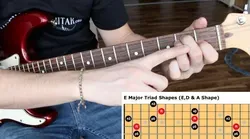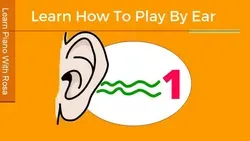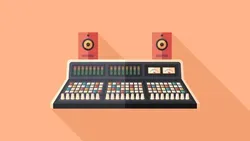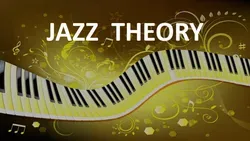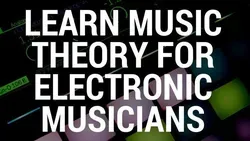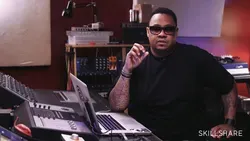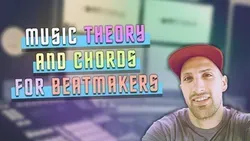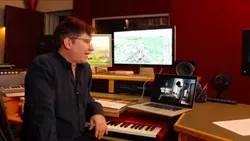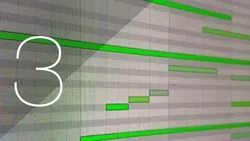Free Online Music Theory Courses and
Certifications 2026
Music Theory is the study of the language and notation of music. It is a fundamental part of music education, and is suitable for musicians, music teachers, and musicologists. Courses in Music Theory cover topics such as harmony, counterpoint, and form. It is also useful for composers, arrangers, and performers.
Popular Courses
Henry Olsen's Music Theory 101 For Guitar course is designed to help guitarists understand the fretboard, build any chord, and play in any key. With this course, guitarists can gain the knowledge and skills to take their playing to the next level.
Learn More
Playing by ear is an exciting skill that anyone can learn. In Learn to Play By Ear #1, beginners will gain an understanding of the seven tones used in most songs. This course is designed to help those who want to start tapping and playing by ear, regardless of their musical background. With this course, anyone can learn to play by ear and create beautiful music.
Learn More
Get a comprehensive overview of Loop: Repetition and Variation in Music
Learn More
This course provides producers with the essential knowledge and skills to mix their tracks to a radio-ready, commercial quality. Through a comprehensive guide, producers will learn how to use EQ, compression, reverb, and other tools to create a professional sounding mix.
Learn More
This course provides an in-depth look at Music Theory, with the same syllabus used in college classrooms. It is designed to help anyone learn the fundamentals of Music Theory, from harmonization to chord progressions. With this course, students can gain a comprehensive understanding of Music Theory at a fraction of the cost.
Learn More
Ear training is the process of learning to recognize musical notes and intervals by ear. This introduction provides an overview of the basics of ear training and how to get started. This introduction to ear training provides an overview of the basics of recognizing musical notes and intervals by ear. Learn how to get started and develop your skills in this important area of music.
Learn More
This comprehensive jazz theory course covers a range of topics, from understanding the relationship between scales and chords to learning reharmonization techniques. Students will learn how to form jazz chords, which notes and scales to use for improvisation and soloing, and more. With this course, students will gain a deeper understanding of jazz theory and be able to apply it to their own playing.
Learn More
A modern composer is no longer the image of a person in a dusty attic with a grand piano and a white wig. Music Composition Techniques 2: Tension & Release is a course that teaches the techniques of modern composition, such as creating tension and releasing it to create a powerful effect. It is designed to help composers of all levels create music that is both powerful and emotionally engaging.
Learn More
This course provides an introduction to the fundamentals, principles, and myths of music composition. It is designed for those who are interested in taking their music career or hobby to the next level. It covers topics such as basic music theory, songwriting techniques, and the use of technology in composition. Students will gain the skills and knowledge necessary to create their own music.
Learn More
This course is designed to help electronic musicians understand the fundamentals of music theory. It covers topics such as scales, chords, harmony, and rhythm, and provides a comprehensive guide to understanding the basics of music theory. With this course, electronic musicians can gain the knowledge and skills needed to create their own music.
Learn More
Focus, a Grammy Award-winning music producer, has worked with some of the biggest names in music, such as Beyonce, Dr. Dre, and Kendrick Lamar, for over two decades. He has developed a unique approach to collaborating with artists in the studio, which has enabled him to create some of the most iconic music of the 21st century.
Learn More
This course is designed to help beatmakers and producers understand the fundamentals of music theory and chords. It emphasizes the importance of having a strong foundation in music theory in order to create amazing beats. Through this course, beatmakers and producers will gain the knowledge and skills to take their music to the next level.
Learn More
This course provides an in-depth look at SATB composition, taught by an experienced college professor. It covers the same syllabus used in college classrooms, but at a fraction of the cost. With this course, anyone can learn the fundamentals of Music Theory and gain the skills to compose their own SATB pieces.
Learn More
This course, taught by a music industry veteran, provides an introduction to music composition for TV commercials. Students will learn how to analyze a scene, create a story and emotional tone, and develop the first steps of composition. Through this course, students will gain the skills to create music for commercials.
Learn More
This course is an advanced level of Music Theory for Electronic Musicians, and Music Theory for Electronic Musicians 2. It teaches students how to use the piano roll editor in a DAW to create complex harmonies, melodies, and full tracks. Students will gain a deeper understanding of extended harmony and how to apply it to their music.
Learn More
This course provides a comprehensive introduction to Music Theory, covering Counterpoint. It is designed to be accessible to all, and is based on the same syllabus used in college classrooms. It is an affordable way to learn the fundamentals of Music Theory, and gain a better understanding of Counterpoint.
Learn More
Music Theory Courses
Career Trends
Career Prospects
| Average Salary | Position Overview
|
| Music Instructor | $28.45 per hour
| A music instructor is responsible for teaching students about music theory and facilitating various musical activities, such as singing, playing instruments, and analyzing musical works, depending on the age and skill level of the students. Music teaching positions can be found in various settings. |
| Music Therapist | $78,610 per year | Music therapists are highly trained, board-certified practitioners who work with a wide variety of individuals to help manage pain, reduce stress, express emotion, enhance memory, improve communication, and promote physical rehabilitation. |
| Piano Teacher | $39.76 per hour | Piano teachers offer piano lessons to individuals interested in learning to play the piano. They may work in schools or operate as independent contractors who travel to students' homes or conduct lessons from private studios. Piano teachers provide feedback on their students' progress, organize recitals, and prepare students for competitions. |
Educational Paths
1. Bachelor's Degree in Music Theory: This is a four-year program that focuses on music theory, composition, history, and performance.
2. Music Theory Courses: Many colleges and universities offer individual music theory courses that can be taken as part of a degree program or on their own.
3. Online Music Theory Courses: Several online platforms offer music theory courses for beginners, intermediate, and advanced learners.
4. Music Theory Workshops and Seminars: Various workshops and seminars are held throughout the year that cover specific topics in music theory, providing opportunities for musicians to expand their knowledge and skills.
Frequently Asked Questions and Answers
Q1: Where should music theory beginners start?
A great place to begin is by learning the basics of rhythmic note values, including rests and dotted notes, as well as pitches on the grand staff (treble and bass clefs combined). Additionally, it is important to understand accidentals (flats, sharps, and naturals), the Circle of 5ths, and key signatures. With a solid foundation in these topics, music theory beginners can then move on to more advanced concepts.
Q2: What is the basic theory of music?
Music theory is a practice that musicians utilize to comprehend and convey the language of music. The fundamentals of music are explored through the study of musical theory, which also offers a framework for interpreting musical compositions. For instance, the elements that constitute harmony, melody, and rhythm are defined by the principles of basic music theory.
Q3: Is music theory easy or hard?
Learning Music Theory is not inherently difficult. It is beneficial to have some experience playing an instrument, and the piano proves to be an excellent tool for learning due to its linear arrangement of notes.
Q4: How can I teach myself music?
One can definitely teach themselves by utilizing resources such as YouTube or instructional videos available online. Whether one aims to play the keyboard or acquire knowledge of chords for their band's singing sessions, online tutorials can effectively guide them towards their desired proficiency. Moreover, these resources can also facilitate the learning of fundamental music theory.
Q5: What Music Theory courses can I find on OeClass?
On this page, we have collected free or certified 370 Music Theory online courses from various platforms. The list currently only displays up to 50 items. If you have other needs, please contact us.
Q6: Can I learn Music Theory for free?
Yes, If you don’t know Music Theory, we recommend that you try free online courses, some of which offer certification (please refer to the latest list on the webpage as the standard). Wish you a good online learning experience!
